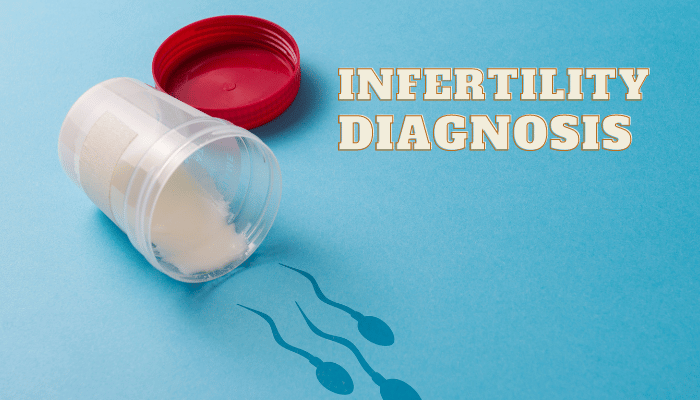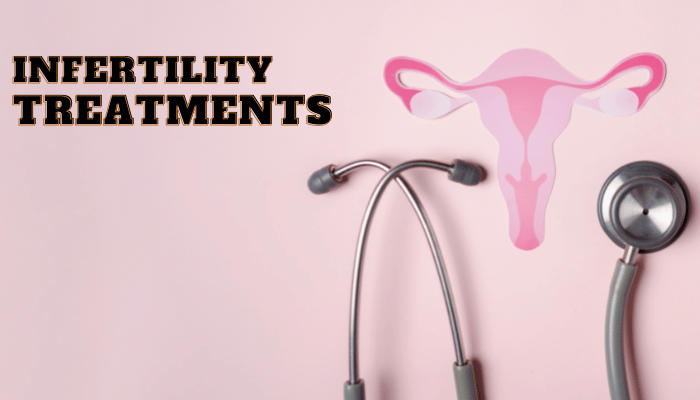
What is Infertility?
Infertility is the inability to conceive after trying for a minimum of one year or to carry a pregnancy to full term. The risk factors of infertility are many. It affects approximately globally. The causes of infertility vary from hormonal imbalances, genetic factors, lifestyle habits, and age. An accurate infertility diagnosis requires medical evaluation. The treatment may include medication, surgery, or assisted reproductive technologies.
Female Risk Factors for Infertility
Here are some common female risk factors for infertility:
- Age
- Endometriosis
- Fallopian tube damage or blockage
- Lifestyle factors (such as smoking, alcohol use, and weight)
- Ovarian reserve decline.
- Ovulation disorders
- Pelvic inflammatory disease (PID)
- Polycystic ovary syndrome (PCOS)
- Previous surgeries (such as hysterectomy)
- Radiation or chemotherapy
- Stress
- Thyroid dysfunction
- Uterine problems

Infertility Testing for Women
Infertility testing for women typically involves evaluating hormone levels, conducting pelvic exams, and performing imaging tests to determine the cause of infertility and the best treatment.
1. Ultrasound
An ultrasound is a commonly used test in infertility diagnosis and evaluation for women. It uses high-frequency sound waves to produce images of the reproductive organs and can help diagnose issues such as ovarian cysts, fibroids, or problems with the uterus.
2. Tubal Testing
Tubal testing is an infertility testing for women that assesses the health of the fallopian tubes. It uses a hysterosalpingogram (HSG), X-ray, and dye to visualize the tubes, or laparoscopy, a minimally invasive surgical procedure. These tests check if the tubes are blocked, damaged, or have other issues that could affect fertility. A positive tubal test result can help guide further infertility treatment options, such as in vitro fertilization (IVF).
3. Hysteroscopy and Laparoscopy
Hysteroscopy and laparoscopy are minimally invasive surgical procedures used in infertility testing for women. These tests check for endometriosis, scarring, or blockages. Hysteroscopy allows a doctor to examine the inside of the uterus, while laparoscopy examines the pelvic organs, including the fallopian tubes, uterus, and ovaries.
4. Genetic Testing
Genetic testing assesses the presence of any genetic disorders or conditions that may affect fertility. It is through blood tests, chromosomal analysis, or pre-implantation genetic testing (PGT). These tests can help diagnose conditions such as Turner syndrome, structural chromosome abnormalities, and genetic mutations.
Female Infertility Treatments
Female infertility treatments may include medications to regulate hormone levels, surgical procedures to repair physical obstructions, assisted reproductive technologies such as in vitro fertilization (IVF), and lifestyle changes to improve overall health and fertility.
A. Lifestyle Modifications
Lifestyle modifications are a vital part of female infertility treatments–
- Maintaining a healthy weight
- Exercising regularly
- Avoiding smoking and excessive alcohol consumption
- Managing stress through relaxation techniques and therapy
- Improving dietary habits
B. Medicines
Medicines regulate ovulation, improve egg quality, or treat underlying conditions that may affect fertility like-
- Clomiphene citrate (Clomid) – to stimulate ovulation
- Gonadotropins – to stimulate follicle growth and ovulation
- Metformin – treating PCOS(polycystic ovary syndrome
- Letrozole – to stimulate ovulation
- GnRH (gonadotropin-releasing hormone) analogs – to regulate menstrual cycles
- Progesterone – to support implantation and pregnancy.
C. Surgical Management
Some surgical procedures used in female infertility treatment include:
- Laparoscopy: to treat conditions such as endometriosis, scarring, or blockages in the fallopian tubes
- Hysteroscopy: to remove uterine polyps, fibroids, or correct uterine abnormalities
- Tubal surgery: to repair or remove damaged or blocked fallopian tubes
- Ovarian drilling: Helps in PCOS (polycystic ovary syndrome treatment).
- Myomectomy: to remove uterine fibroids

Advanced Fertility Treatments
Advanced fertility treatments are used in female infertility when other therapies have not been successful or when specific conditions make conception difficult. They include-
- In vitro fertilization (IVF) – a process where eggs are removed from the ovaries, fertilized with sperm in a lab, and then transferred back to the uterus.
- Intracytoplasmic sperm injection (ICSI) – a type of IVF where a single sperm is injected directly into an egg
- Donor egg or donor sperm – using eggs or sperm from a donor to achieve pregnancy
- Surrogacy – when a surrogate carries a gestation for another person or couple
- Frozen embryo transfer (FET) – using previously frozen embryos for a subsequent pregnancy attempt
Male Risk Factors for Infertility
Here are some common male risk factors for infertility:
- Low sperm count
- Abnormal sperm shape or motility
- Blockages in the reproductive tract
- Ejaculation disorders
- Hormonal imbalances
- Exposure to environmental toxins or radiation
- Age
- Diabetes or sexually transmitted infections
- Drug usage, excessive alcohol consumption, smoking, and other lifestyle habits.
- Surgery or treatments that affect the reproductive organs, such as chemotherapy or radiation therapy.
Infertility Testing for Men
The testing results can provide important information about male risk factors for infertility and determine the underlying infertility cause. Based on the results, a doctor can recommend further tests or treatments if necessary
1. Semen Analysis
Semen analysis involves collecting a semen sample through ejaculation. The semen analysis assesses parameters such as:
- Sperm count
- Sperm motility (movement)
- Sperm morphology (shape)
- Volume of semen
- pH level
- Presence of white blood cells.
2. Ultrasounds
Ultrasound evaluates male infertility using a trans-scrotal approach when there are concerns about the testicles or the epididymis (the structure that carries sperm from the testicles) as:
- Testicular tumors
- Varicocele (enlarged veins in the scrotum)
- Hydrocele (fluid-filled sac in the scrotum)
- No presence of the vas deferens
3. Blood Tests
Blood tests are effective in infertility testing for men. It assesses hormone levels and identifies underlying medical conditions that may affect fertility. Tests may include:
- Follicle-stimulating hormone (FSH)
- Luteinizing hormone (LH)
- Testosterone
- Prolactin
- Thyroid hormones
Male Infertility Treatments
Male infertility treatments may involve medications, surgical procedures, lifestyle changes, assisted reproductive technologies, and more.
1. Lifestyle Changes
Making positive lifestyle changes can improve overall health and increase the chances of successful fertility treatment like-
- Quit smoking and limit alcohol consumption
- Maintaining a healthy diet and weight
- Reducing exposure to environmental toxins and radiation
- Avoiding hot baths and saunas to protect sperm from overheating
- Managing stress levels through exercise or relaxation techniques.
2. Assisted Reproduction Technologies
Assisted reproduction technologies (ART) are efficient when there is a low sperm count or poor sperm quality. ART techniques involve collecting sperm and combining it with an egg in a laboratory to achieve pregnancy.
ART techniques may include:
- Intrauterine insemination (IUI)
- IVF Treatment (In vitro fertilization)
- Intracytoplasmic sperm injection (ICSI)
- Sperm donor programs
3. Surgical Sperm Retrievals
Surgical sperm retrieval is effective when sperms do not reach the semen through ejaculation. The collected sperm is used in assisted reproduction techniques, such as in vitro fertilization (IVF) or intracytoplasmic sperm injection (ICSI).
Surgical sperm retrieval may be necessary for men with-
- Obstructions in the vas deferens
- No sperm present in the semen
- Azoospermia (absence of sperm in the semen)
4. Medicine to Boost Hormones
Medicines treat male infertility by boosting hormones. Medications can be through injections or patches. Medicines are used alone or in combination with assisted reproduction techniques, such as in vitro fertilization (IVF) or intracytoplasmic sperm injection (ICSI). The choice of medicine will depend on the underlying cause of infertility and individual circumstances.
Hormones targeted include:
To Conclude
Always discuss with a doctor about individual infertility treatments. You must know the potential risks or limitations of treatments. The choice of medicine and the specific treatment plan will depend on the individual’s medical history, diagnosis, and response to treatment. A doctor can provide more information and guidance on the best options for each case.

Lifebing is driven by an unrelenting passion for promoting health and well-being, our team is wholly committed to curating exceptional content and immersive experiences.
